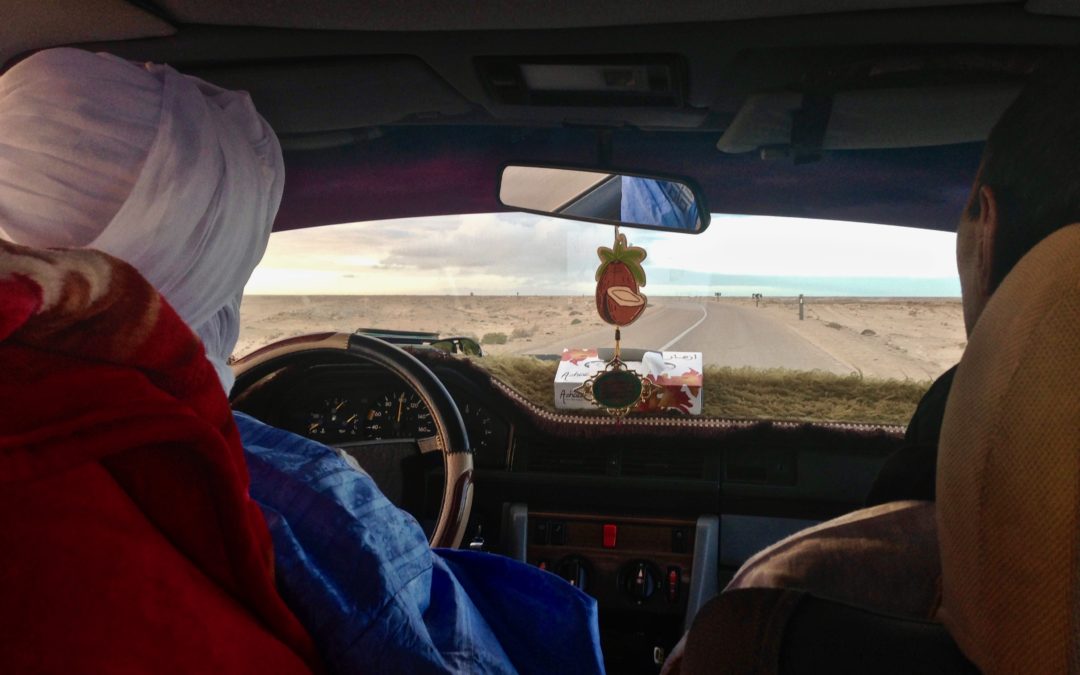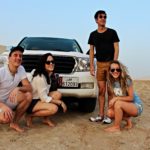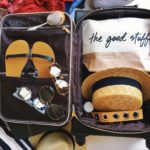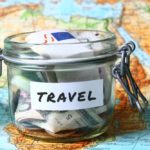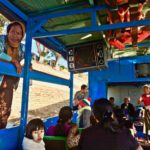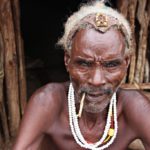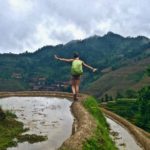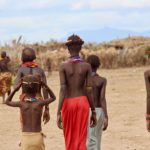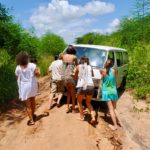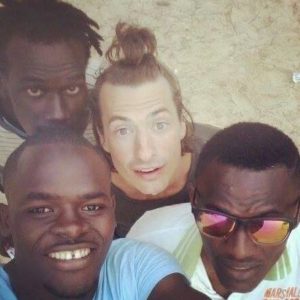 Contributor Bio: Spencer Brisson is a 27-year-old musician, animator, and experimental life artist from North Carolina, currently residing in Brooklyn, New York. Follow Spencer over on Instagram @spynthesizer.
Contributor Bio: Spencer Brisson is a 27-year-old musician, animator, and experimental life artist from North Carolina, currently residing in Brooklyn, New York. Follow Spencer over on Instagram @spynthesizer.
Editor’s Note: Meet Spencer Brisson, who did one of the most badass trips I’ve come across yet, traveling by local transport across Mauritania and the Western Sahara and spending two months vagabonding in Senegal.
I’m letting Spencer tell you the full story in his own words, so brace yourself for being really impressed by his instinct for meaningful, explorative, and off-the-beaten-path travel as he stays with locals in remote Senegalese villages and fearlessly hops in taxis to cross the Sahara desert in Mauritania.
There’s a TL;DR version at the bottom with a short Q&A, but his extended version is hilarious, surprising, and gives you the real inside look at how an epic adventure like this naturally unfolds on the road. Enjoy!
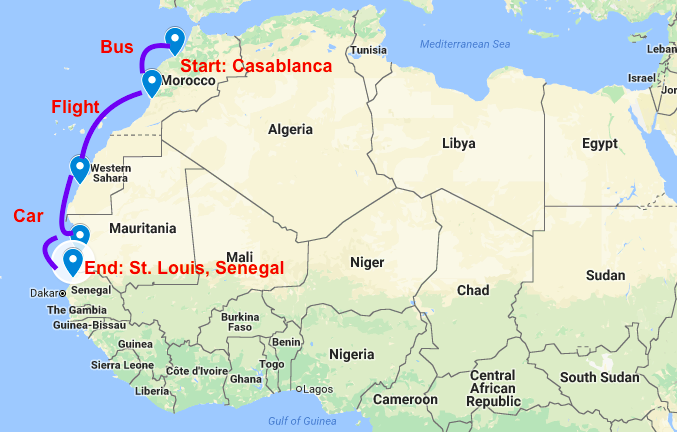
An overview of Spencer’s journey from Morocco to Senegal
This adventure was my first solo trip — as well as my first time out of the United States. Growing up, my parents took me Pennsylvania once, Florida twice, and Tennessee a couple times. I flew on a commercial airline for the first time when I was 22, to see my (ex) girlfriend in Boston.
After college, I moved from Granite Quarry, North Carolina to New York City. I worked full time for about two years, but felt like my life was under someone else’s control. I was living with two friends in a one bedroom apartment in Williamsburg. When that situation came to an end, I sold most of what I owned and told work I was going to travel for a month. (I was technically a freelancer so they didn’t mind.)
I got a passport. I booked a one-way flight and planned to see popular destinations in Europe: Iceland, London, Copenhagen, Berlin, Barcelona, Seville. I walked around the cities, saw the sights, and partied with other travelers in hostels. After a month of traveling like this, I felt something was missing from the experience. I wasn’t having any deep interaction with locals and the culture still felt pretty similar to America (in my opinion). Instead of returning home, I decided to venture down into Morocco.
After a 45-minute ferry from Spain and few nights in Tangier, I went east to the mountain town called Chefchaouen, an area known for it’s hash production. On top of a hostel at sunset, listening to the call to prayer reverberate off mountain, an Austrian with dreadlocks told me about the overland trip to Senegal he had just taken. This seemed like the experience I was seeking. He wrote down the names of a few places to stay on the way as well as a few places to avoid.
I held onto the note, unsure if I would actually venture that far into Africa, but the idea stuck with me.
On the way south to Marrakech, I stopped in Rabat and Casablanca. On a whim, I visited the Mauritanian embassy and applied for a visa, which I received the next day. I spent a day searching Casablanca and Rabat for a yellow fever vaccinations, speaking in sign language and terrible French, and preparing 20 copies of my travel details, passport and visa. I was advised this would save me from having to get out of the car at the many military checkpoints throughout the Western Sahara.
I took a bus to Agadir. From there, I hopped a short flight to Dakhla, a little oasis by the water influenced by Mauritanian, Berber, and Moroccan culture, yet at least a 12 hour drive from anywhere else slightly populated. In Dakhla, I found a flyer advertising shared taxi rides to Nouakchott, the capital of Mauritania, 800 kilometers away.
At 6am the next day, I jumped into a car with a few others in flowing Mauritanian robes. Speaking no Arabic, this was to be a fun car ride. Atonal singing came in out of reception on the radio for hours and hours as we drove down a traffic-less two lane highway wedged between the ocean and the Sahara desert. We came upon a military convoy parked in the middle of the highway. Soldiers in the backs of trucks with AK47’s, covered in robes and head wraps. We passed at full speed on the shoulder of the road.
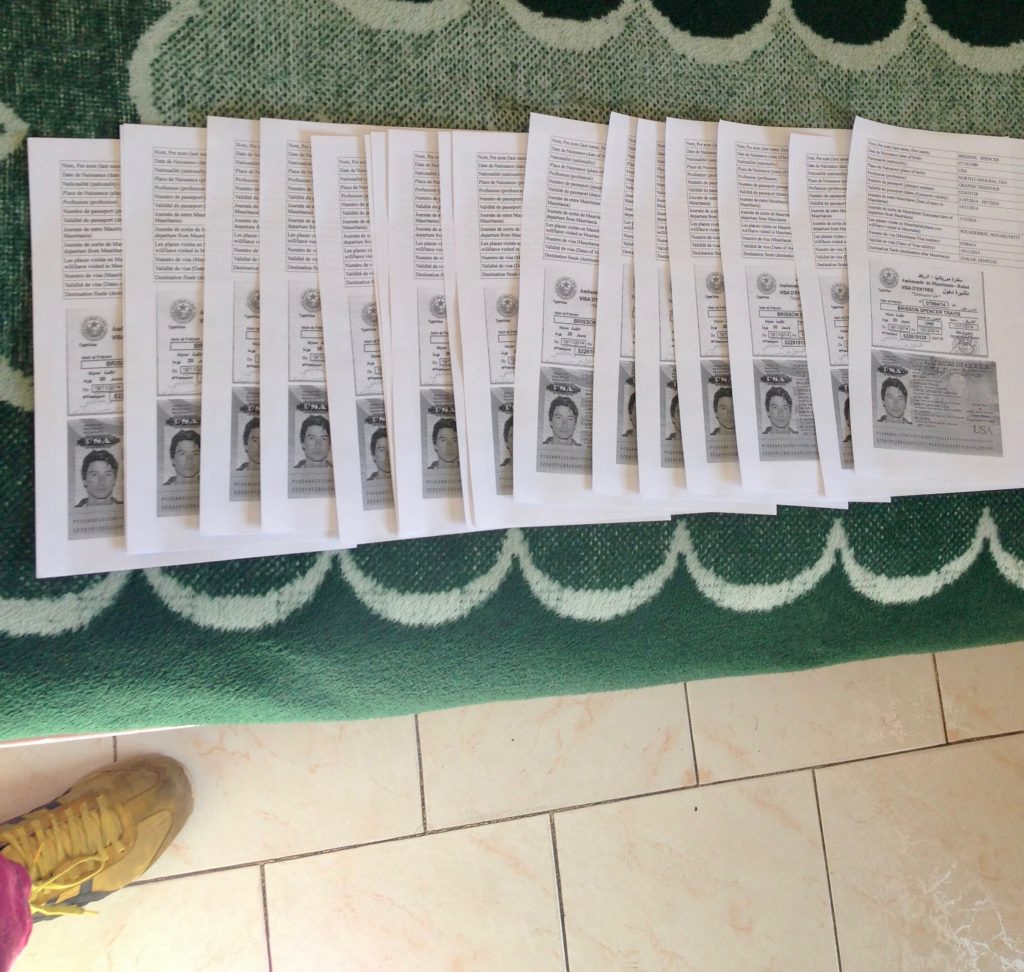
Getting passport copies ready for overland transit through the Western Sahara and Mauritania
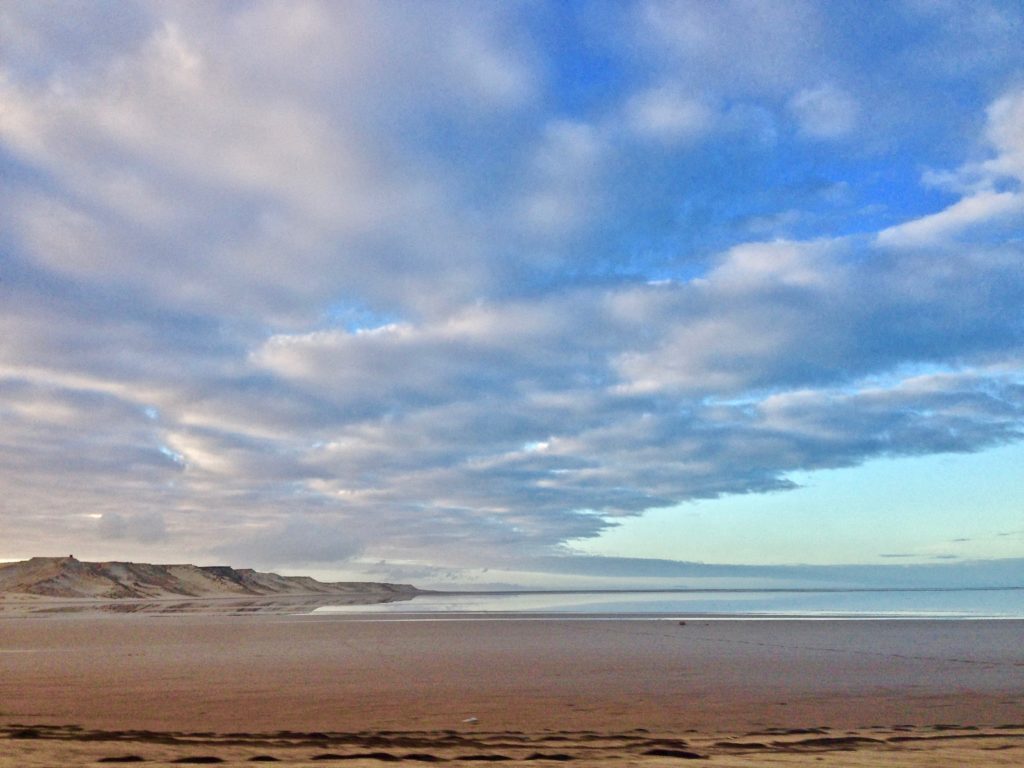
Passing through the Western Sahara territory
I learned that the Western Sahara is technically a disputed territory under a 20-year ceasefire. At one point in time, Mauritania and Mali fought Morocco for it. (I’m not sure why because there’s nothing there.) It’s neither Mauritania nor Morocco, but Moroccan military presence currently controls it. There is a 5 kilometer strip in between the territory and Morocco. The area is land mined and there is no road. It’s all rock and sand. My greatest fear was being somehow refused entry into Mauritania and getting stuck in that 5 km strip forever.
The no man’s land was surreal. Abandoned cars were cast about, completely stripped to the bone, some jutting out of the sand in strange angles. There were piles of old televisions. Figures walked in the distance, one man carrying an old television. A group of Mauritanian men stopped our car. A dark figure leaned over my window and stared at me, smiling. I had no clue what they were discussing with our driver, but they soon let us go.
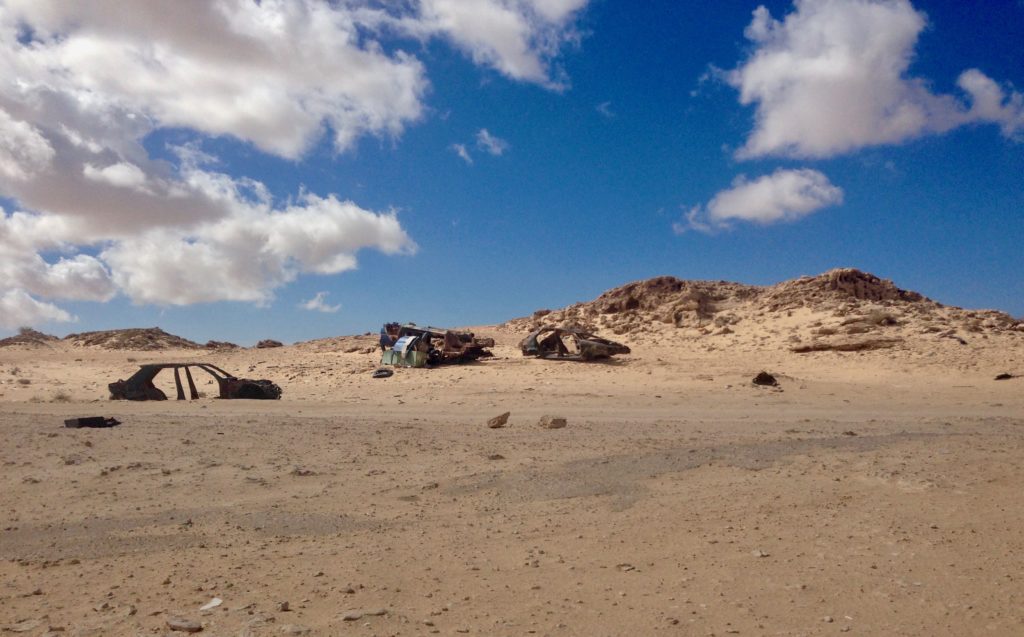
More of the Western Sahara
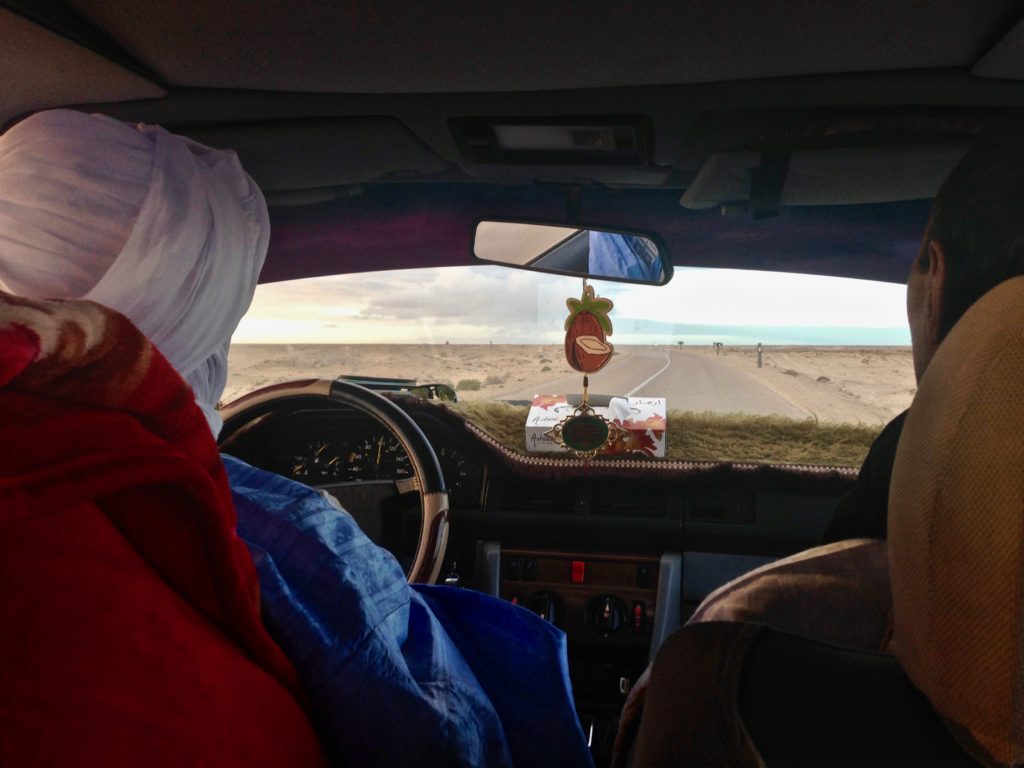
On the way into Mauritania
After a brief interrogation, we made it into Mauritania. Mauritania was still mostly desert, with patches of palm trees and camels. We passed spaced out villages made of plywood walls and tin roofs. When we finally stopped to pray, I was starving. The driver took me to a spot to lay down and I began to nod off. I woke up to the sound of a crackling fire. Around the corner, there were two huge beef ribs cooking and we all sat on the ground taking turns cutting off pieces of meat and passing the knife. When my turn came, I burnt my hand trying to cut the beef and everyone had a good laugh. After that, I lost knife privileges and everyone would just toss me a piece of meat after they cut their own. We sopt up the juices with bread afterwards. The driver refused to let me pay.
The capital city of Nouakchott barely had paved roads. I was stunned by the amount of physically ill people living on the street. I spent a night there and then found a shared taxi to the border of Senegal. There was one man, an English teacher, in the taxi when I arrived. He told me, “This is a very nice taxi. They always have a sit for everyone.” I said, “You mean a “seat” for everyone.” “Ahh seat, he replied. “Synonym for chair, yes?” A little while later, a car full of young people stopped beside us and we then squeezed 7 people into a Mercedes with 5 seats. I spent the next 5 hours sharing the passenger seat with my new 200-pound English teacher friend. I tried to take a picture of us riding this way but he refused, saying it would make his wife jealous.
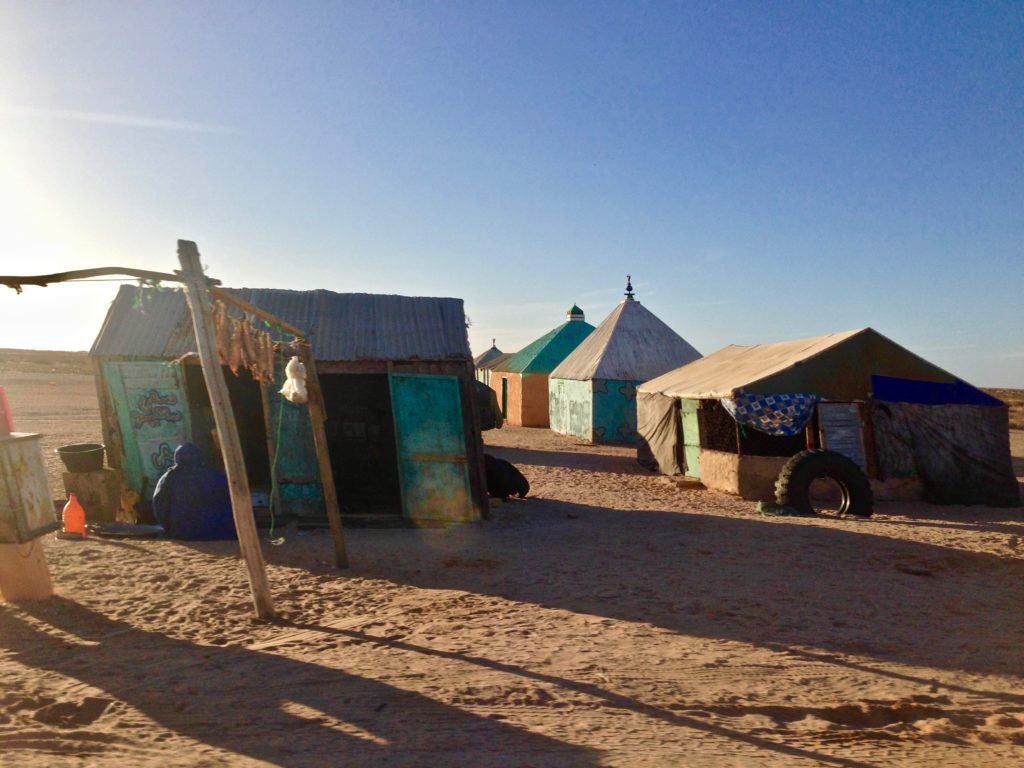
Approaching Nouakchott, the capital of Mauritania
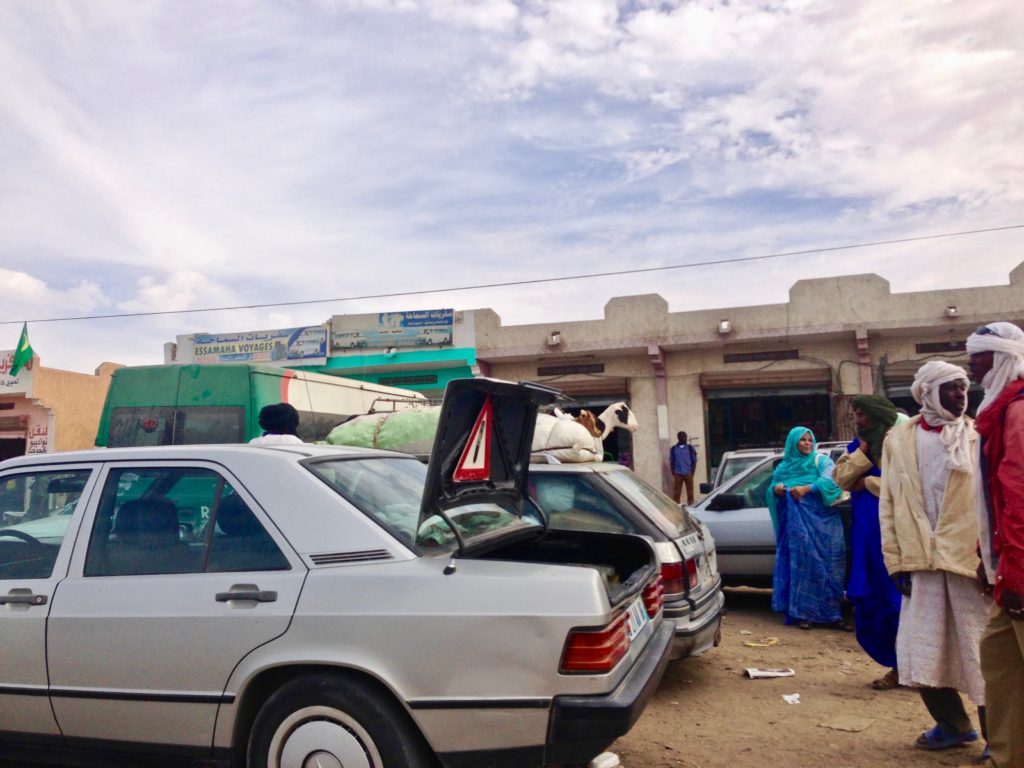
Nouakchott, Mauritania
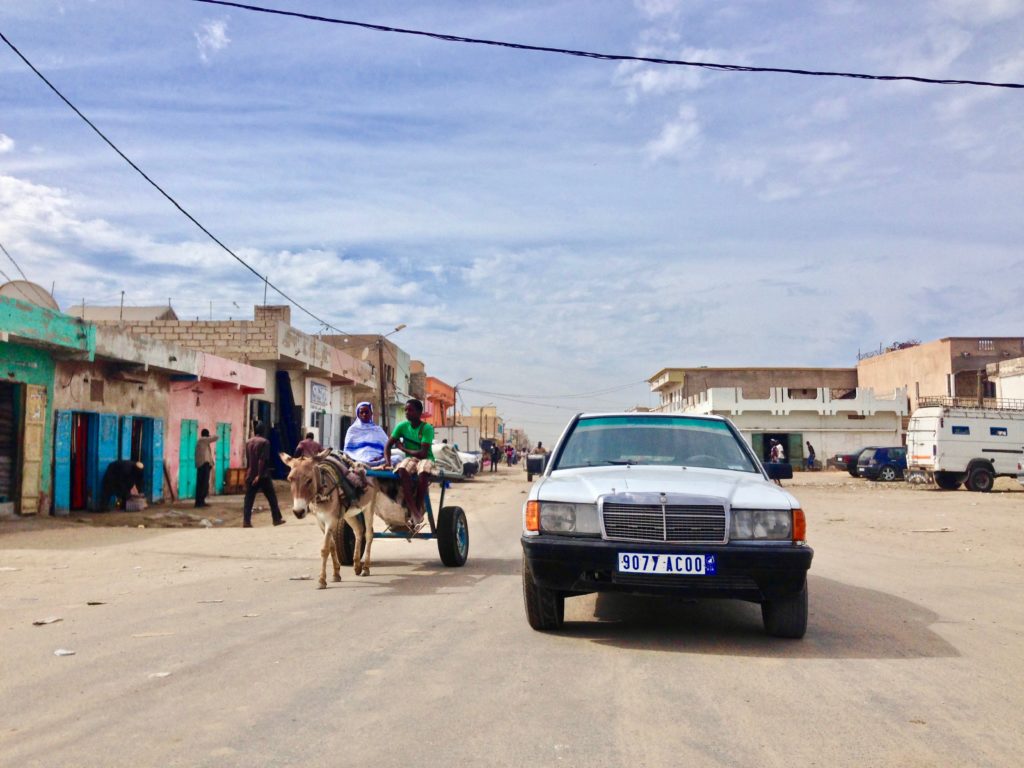
Nouakchott, Mauritania
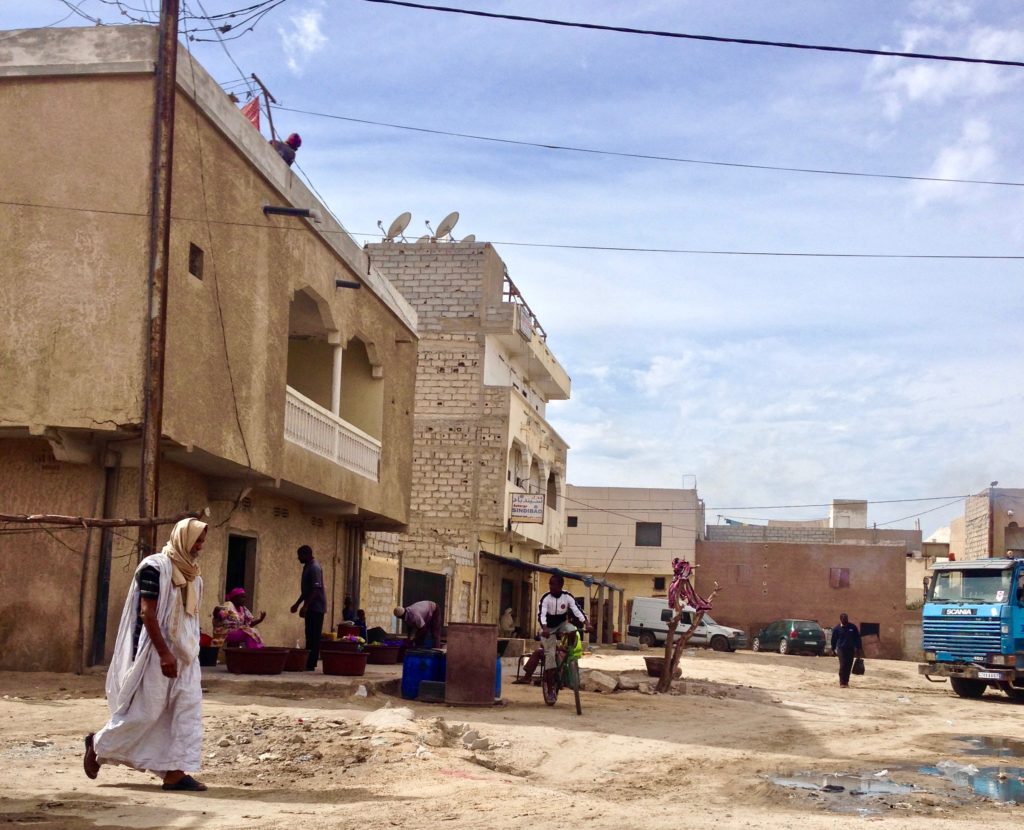
Nouakchott, Mauritania
At the border, we took a long canoe-like boat across the river into Senegal and then another shared taxi to St. Louis. I stopped a young Senegalese guy about my age to ask him for the time. His name was Cherif and he immediately invited me to stay with his family. For the next week, I joined his life: playing soccer, visiting the city, and meeting his friends. When asked how I could repay him for the hospitality, he asked me to buy him and his mom a toothbrush and toothpaste.
Cherif had a friend named Kouyote Issa, one of the most amazing people I have ever met. His door was always unlocked, his food always shared, he spent most of his time in a program he ran for street children. Through Issa, I met an American named Andrew, who helped Cheriff get an internship in video editing in Dakar. Cherif and I then traveled to the capital together to stay with his aunt and meet Andrew.
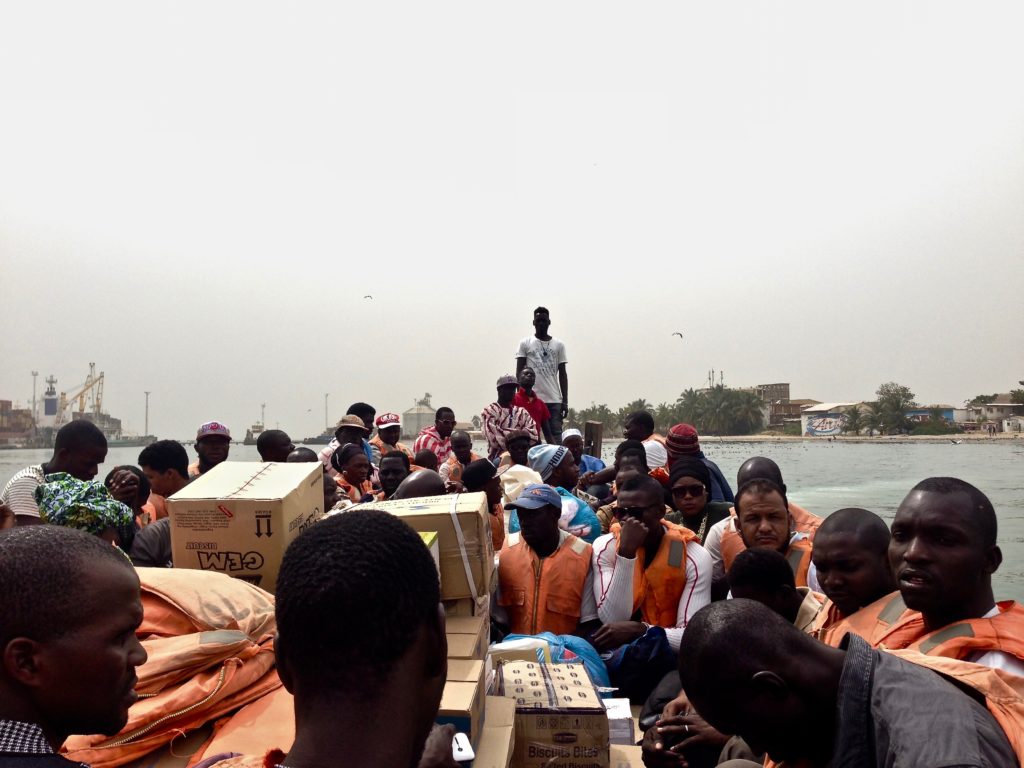
Crossing the border into Senegal by boat
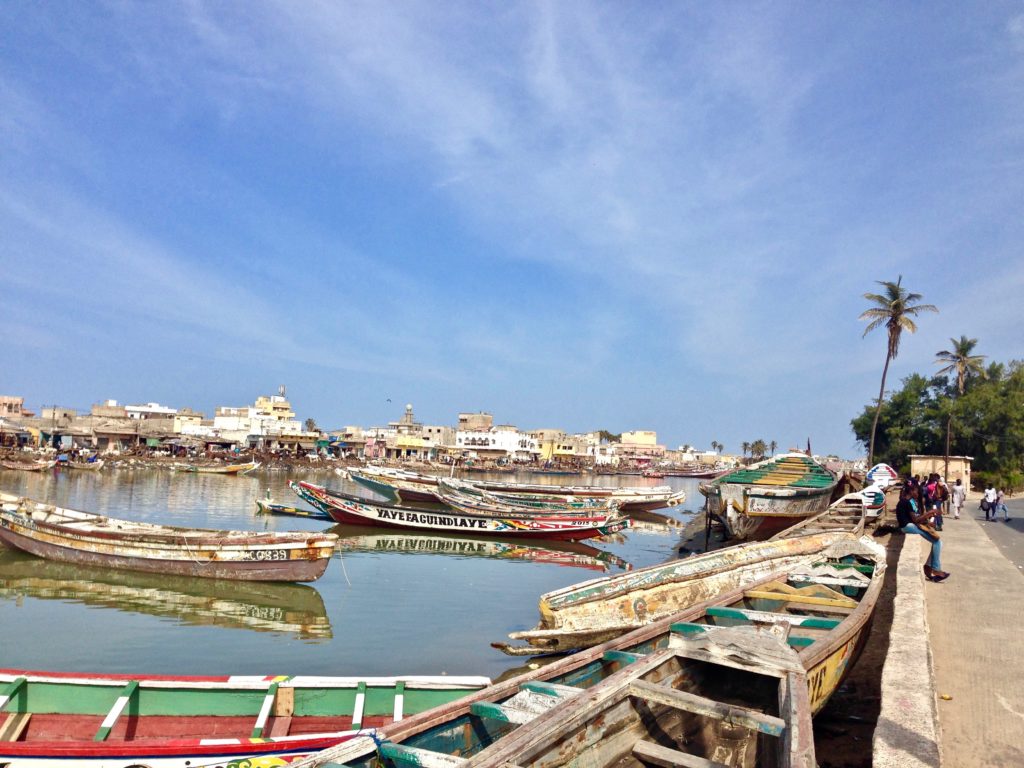
St. Louis, Senegal
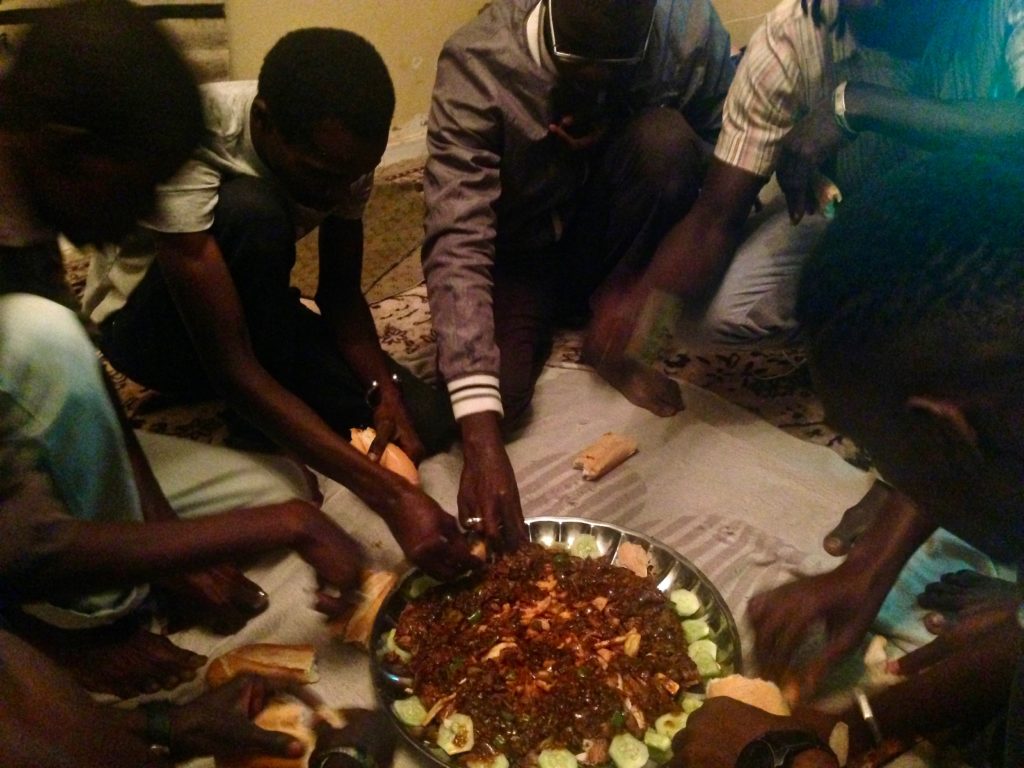
Life with Cherif
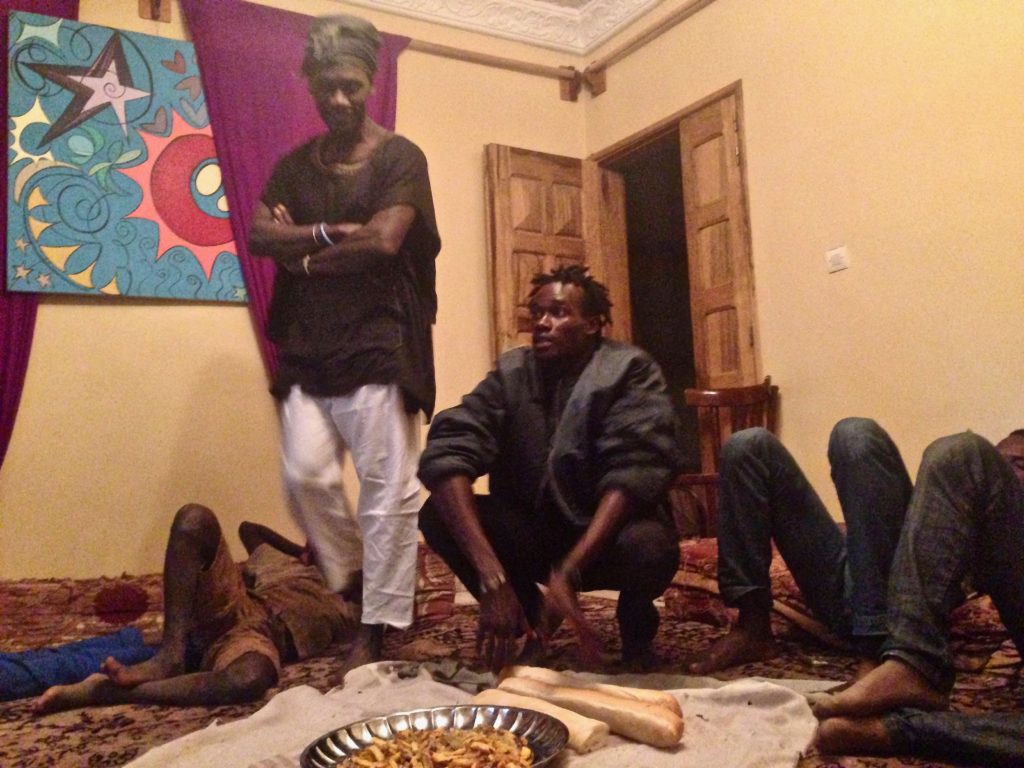
Life with Cherif
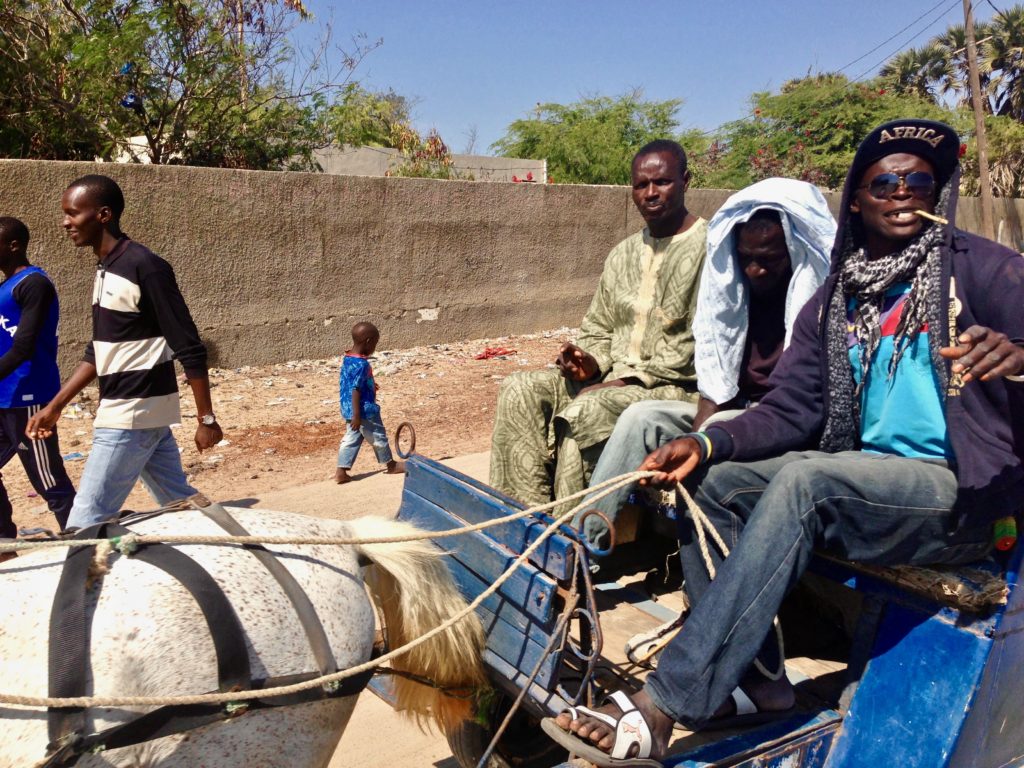
Dakar, Senegal
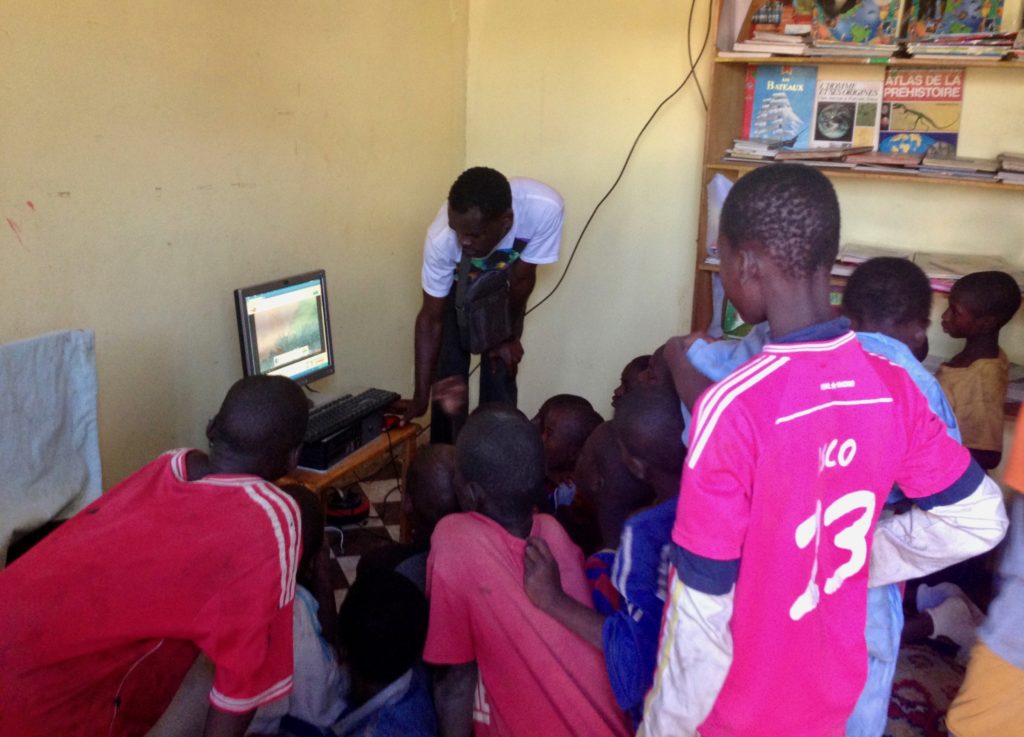
Life with Cherif
Later, at Andrew’s suggestion, I went to Kedougou, a 12-hour bus ride away in the far corner of Senegal beside Mali and Guinea, and met Jake, a Peace Corps volunteer out there.
One of the more memorable things was when Jake took me on a 25 km bike ride out to his village — but my bike broke down in the first mile. A stranger with a motorcycle rescued me and took me, my bike, and his groceries up a mountain to the village where Jake lives… 2 hours before Jake would arrive. Which left me in a West African village, unable to speak the native language whatsoever, hours before the arrival of my new friend. Luckily Jake called the chief and he came and took me in. We took turns pointing at things and saying them in our languages until Jake arrived.
I spend a few nights sleeping in a hut on the ground, eating food grown on the same land I was sleeping on, and enjoying the night sky with no lights or electricity in any direction for miles. Jake would translate and tell me about the customs and village drama. In retrospect, I wish I would have spent weeks out there. Instead, I returned to Kedougou and a girl I met on the bus ride there, Fadimata, invited me to Tambacounda, a small city another 4 hours away. I stayed for two weeks with her family, a family of one dad, three wives, and twelve children. I joined Fadimata’s band as a bassist and we played two or three shows, sometimes with crowds of up to 100 people.
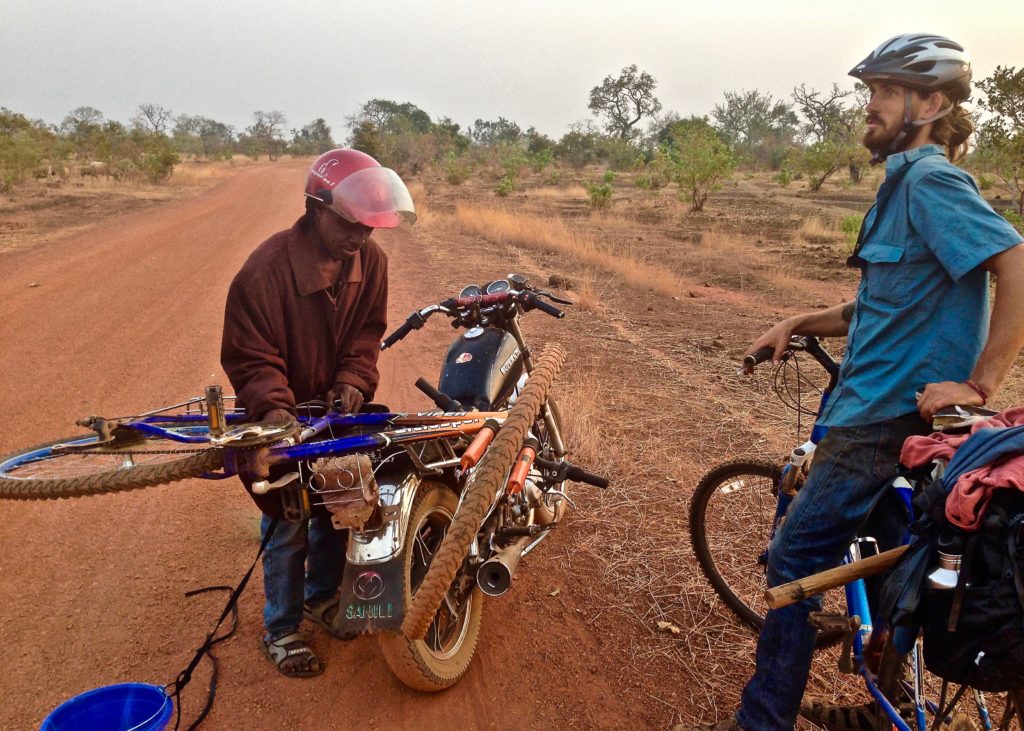
Biking with Jake to the Peace Corps village
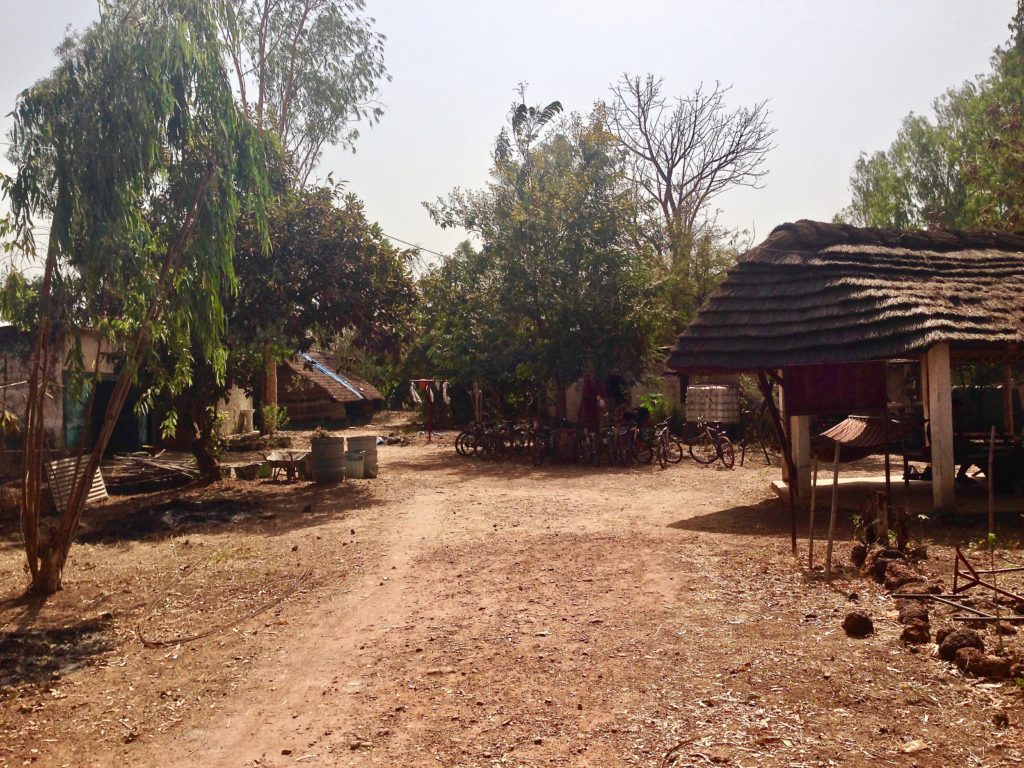
Jake’s village in Senegal
It was right around New Year’s Eve, which I spent on the beach in the south with a language teacher I met at the general store, when I received a call from work (now four months absent when I originally told them I’d be gone for a month or two). They wanted me to do some visual effects for a TV show starting in a week.
New York wanted me back, and I was also going broke. I had spent about $5,000 on the first part of the trip that I described in a few sentences above, and $500 on the duration of the trip this story was about. Lured back by the opportunity to make more money and plot future adventures, I hopped a flight from sticky, 100 degree Dakar back to the freezing winter in New York.
TL;DR Version:
This was the first time I ever left the United States. I flew to Iceland, London, Copenhagen, Berlin, Barcelona and Sevilla in about a month, booking all those flights for something like $500 in advance and staying with friends and in hostels. I grew bored by the backpacker scene (and the money I was spending) and switched to overland travel mode, going by bus to Portugal, then bus and ferry to Morocco, where I spent a month before developing an appetite for more adventure.
After meeting a traveler in Morocco who had done something similar, I decided to travel by local taxi across the disputed Western Sahara territory from Dakhla to Nouakchott, Mauritania, then shared a taxi to Senegal where I moved into the bedroom of a local guy my age and traveled with him to Dakar to stay with his aunt. I later took a bus to Kedougou in the southeast corner of the country by Mali and Guinea, and rode a bike to a remote village with a random Peace Corps volunteer. I stayed there in a hut with no electricity and ate everything grown from the ground for a few nights.
After that, I spent two weeks in Tambacounda, living in a polygamist household (1 husband and 4 wives) with a girl I met on another bus ride. I joined a band and played shows. Then I went to the Casamance region to celebrate new years with a local language teacher I met at a corner store and ran into Peace Corps friends from the village 12 hours away. Randomly, work called and asked if I wanted to create motion graphics for a cool new show, this luring me back to New York after 4 months on the road and one hectic adventure.
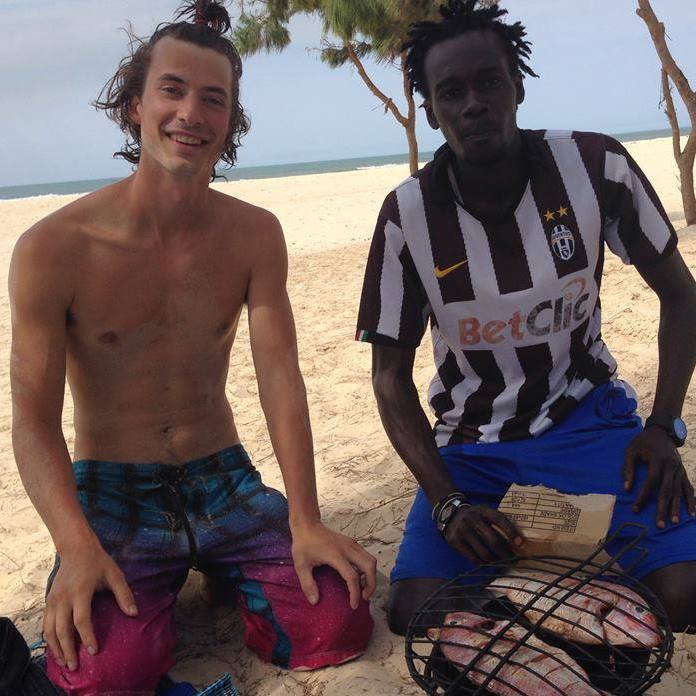
Spencer doing what he does best, making local friends!
Q&A with Spencer:
Q: That was insane. Did anything go really wrong along the way?
A: In Senegal, someone got mad at me for taking a picture. They tried to get money from me and i refused. A huge dude took my glasses from my face and my iPhone, demanding money. Luckily a crowd had formed around us and they pulled us apart and took my belongings from the man and gave them back to me.
Q: Any really standout moment?
A: Riding down footpaths, stream beds, and speeding through villages on the back of a motorcycle driven by a 14-year old boy who didn’t speak my language, making a deal with a chief whom I also didn’t share a language with, who then added an 11-year old boy to the back of our motorcycle to be our guide to a local rock formation. Then all of us flipping the motorcycle on a grassy hill and laughing about it. We got lost in 6-foot tall grass and never made it there. But we did make it back!
Q: How and why did you decide to pursue this particular experience?
A: At first, I had all my flights planned, but I realized traveling was way more fun when I just made it all up as I went. I decided to go further into Africa when I met a traveler in Morocco who had been to Senegal. His story of how the Senegalese took him in really inspired me, so I got the visas and a yellow fever vaccination in Morocco and decided to give it a go.
Q: What resources did you use to help you plan your journey or at least figure out that it was possible?
A: Mostly advice from other travelers that I met in person, as well as some online travel forums.
Q: What’s the biggest thing you learned from this experience?
A: Everything will be alright.
Q: Do you have any recommendations for travelers wanting to do this or something similar?
A: It’s easier to trust people who don’t approach you, people who don’t want anything other than your company. Learn what you can from other travelers along the way. And most importantly: DO IT!!

